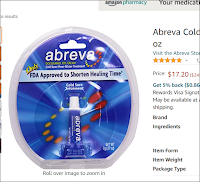**UPDATE**
As a CKD stage 3b patient, I cannot eat a lot of sumac. While it's highly antioxidant and a diuretic, I found some information that will keep my use of it at a minimum. As always, you should talk with your doctors before trying anything new in your diet. Just because something is healthy that doesn't mean it is healthy for you!
Have any of you ever heard of Sumac? Have you ever used it?
I had never in my life heard of Sumac until the other day. It was mentioned in a chat among other sarcoidosis folks as being very high in anti-oxidants. It's been about 4 years since I blogged about ORAC numbers (ORAC = Oxygen Radical Absorbance Capacity) and measurements of antioxidants in foods and other things. Sumac is on one of the lists I posted but... I guess because I had no idea what it is, I just spaced it out.
Anyway.
Let's talk about Sumac. When it was mentioned as being such a healthy spice, my American brain immediately thought salty/savory or spicy hot. What a surprise to learn that it is more sour/lemony/tangy.
When I heard about the flavor makeup, I realized that I probably would not use Sumac on meats. I started Googling for more info on the spice, looking for other ways I could use it. I started seeing all these recipes for "Sumac Lemonade" and I got so excited at the description "Think hibiscus-tea-meets-pink-lemonade!" on this page.
I have been drinking so much water the past few months, there are days when I feel I could float away. I occasionally drink calorie-free sparkling water but I always want something with a little oomph to it. Maybe this could be it?
Other than wanting the supposed health benefits, I would also like to forgo any sodium. I have ordered a sodium-free powder and today is the day. I wrote all of this so that I could take some photos and do a taste-test before I give you my opinion. Kind of an on-the-spot/in-the-moment blogging thing. So, give me one minute...
Okay. Here is what I think after trying it right out of the bag, then on a small piece of baked salmon, as a hot tea, and as a cold "lemonade".
Right out of the bag, this was such an interesting flavor. It's weird because it's new but kind of familiar somehow. (Keep in mind that this brand has sodium and I will be testing a salt-free one soon.)
It's salty-tart with a taste of hibiscus. Interesting. I knew right away that, yes, I would be able to eat this on savory foods. So, why not?
On the salmon - a leftover bite of some I had baked with a little butter and nothing else (I like seasoning the salmon on my plate). The sumac I have is dry so I moistened the fish with a few drops of water and warmed it in the microwave. I lightly sprinkled it with sumac and, man... That is tasty. It's almost like I used a blend of seasonings instead of just the sumac. The piece of fish was way too small so I'm going to have to make some more so I can use a little more butter with the sumac. But, yes, yes, yes, the sumac is definitely a "go" with the fish. This particular brand is salty to me so maybe that's why it was good on the fish?
As a hot tea, this was better than I expected but way too salty. I had to add a little bit of sugar. It was pretty yummy but I will wait until I get a brand that is totally salt-free.
The "lemonade" is just what I threw together by making a larger glass of the tea, adding a bit of sugar, and letting set all morning in the fridge. I think I like this salty brand better cold than hot. Still...
I have contacted the seller about the salt in this. They mark the label as "no added sugars" and there is zero sugar shown. However, they don't label it as "no added salt" and the sodium shows as being 77mg per tablespoon. When you say "no added" whatever, I take that the whatever is naturally occurring. When you just show an amount, then I think it's added. That's not a lot of sodium and, as I said, it worked on the fish. The thing is, I have since seen the label of another brand showing zero sodium.
Bottom line, this is a yummy spice with a lot of seasoning possibilities. I can tell that I would not need to add any salt to the salmon. However, there is no way that I would add this brand to non-savory drinks and smoothies. I am hoping to return this one and get a salt-free version. I really wanted this to use as a tea and lemonade.
To summarize:
Antioxidants are important. Do your research. Talk with your medical care team or health care providers. Ask questions about antioxidants found naturally in foods and beverages.
Peace
--Free





















